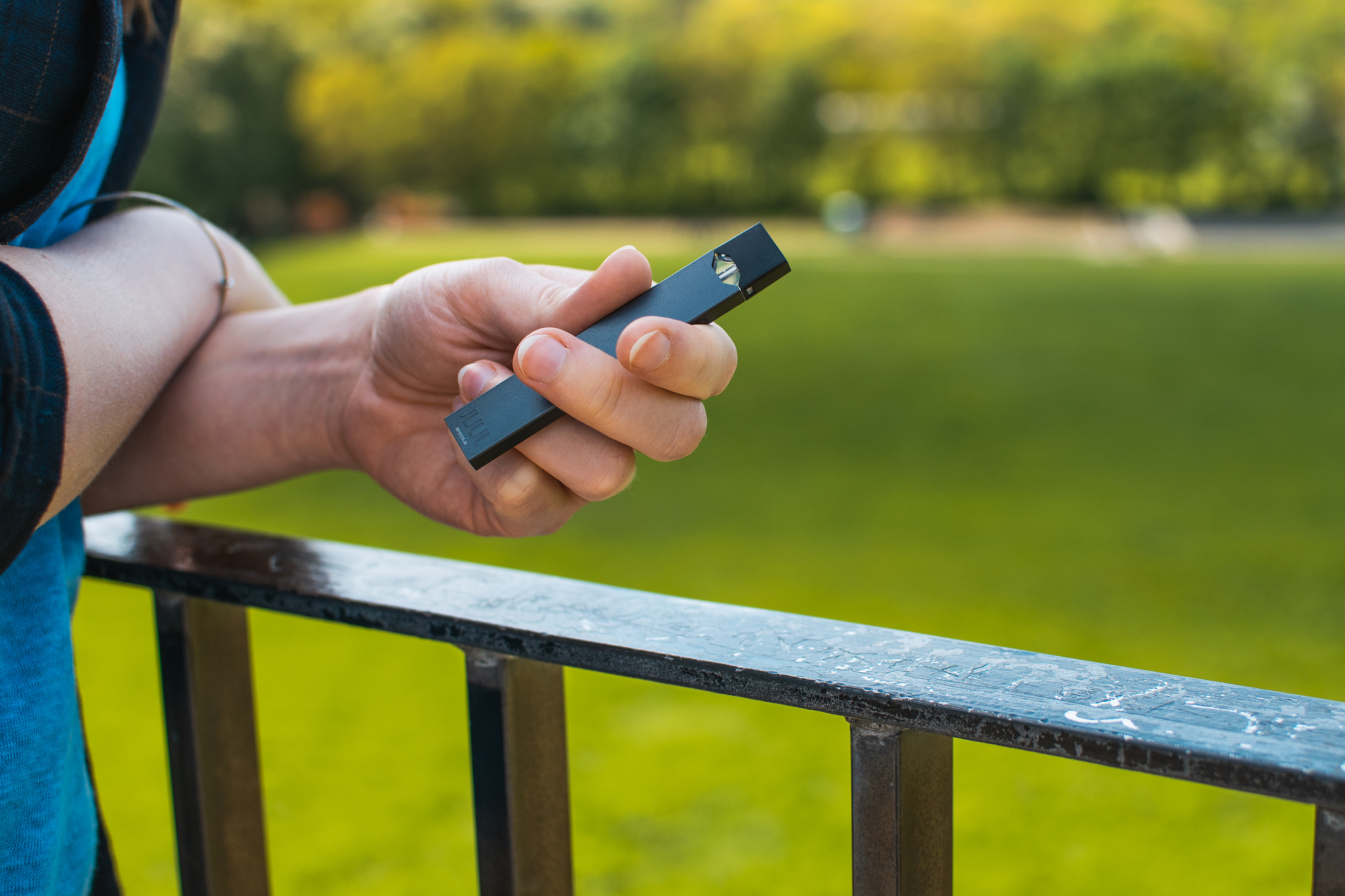Principals are facing disciplinary issues right now – not with smoking in the boys and girls room like the old days, but with vaping. Kids are pulling out vape pens in the classroom, and taking a puff when the teacher turns around.The vapor is usually odorless, disappears in seconds and kids just drop the pens back in their pockets.
On the front lines of what the Food and Drug Administration calls a “national epidemic” are people like Elizabeth Adamson, the wellness director at Trinity School in Midland.
“Some of these devices look very similar to a USB drive,” Adamson says. “[Students] might even have it laying out in plain sight if they think or know the teacher doesn’t know what they’re looking for. They also might slip them into their sock or up their sleeve, so there’s lots of tricks to hiding these.”
The FDA says two million middle- and high-school students are getting nicotine hits from vape pens. Adamson says the nicotine affects students’ ability to learn and function in class.
“When students become addicted to nicotine, you definitely see a decrease in focus,” Adamson says. “You also see an increase in anxiety and depression and impulsive behavior.”
The regional education agency trained Adamson to detect and respond to student vaping, and then she started talking to people in her community about their attitudes about it.
“We did find that there was a large number of parents, students and even faculty who thought that vaping was just a safer alternative and isn’t something we should really be worried about,” Adamson says. “Our decision to start training our parents, our faculty and our students about the dangers of vaping was a direct response to that attitude.”
Adamson’s response to students who are caught vaping focuses on education and counseling, instead of just disciplinary action.
“That seems to work really well,” Adamson says. “We haven’t had any repeat offenders and parents really appreciate that response as well. Part of our response is also educating parents and helping them to understand what’s going on.”
Written by Brooke Vincent. Photo by Vaping 360.

















